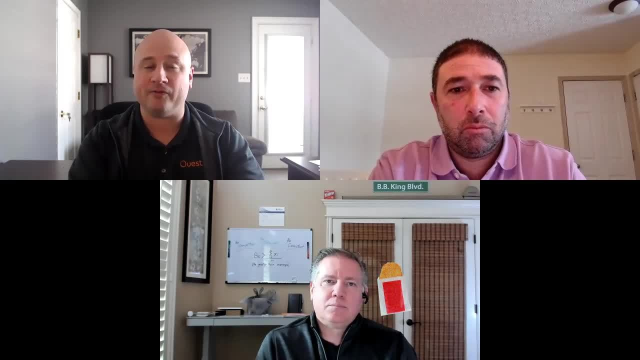Security threat monitoring in Change Auditor 7.1.1
 05:53
05:53
Related videos
See Why and How to Audit and Protect SYSVOL Directory
Active Directory Group Policies are stored within SYSVOL directory, making it a target for attackers. In this video, three IT experts explain why and how organi...
04:14
Reduce Business Email Compromise attacks
Business email compromise afflicts your organization on premises and in Office 365. In this video, three email security experts discuss how Quest can identity w...
03:48
Chris Dancy, the World’s Most Connected Human, is a keynote speaker at TEC 2021
Chris Dancy is a groundbreaking technology influencer who leads organizations on breathtaking journeys into the future of computing. You don’t want to miss his ...
01:34
What makes TEC special - Tony Redmond
Learn what makes TEC different than other conferences, according to Microsoft MVP Tony Redmond.
01:10
The Experts Conference (TEC) community of AD and Microsoft 365 experts
The Experts Conference (TEC) isn’t just an event. TEC is a rapidly growing global community of experts, practitioners, executives and MVPs collaborating on the ...
01:20
The Experts Conference 2023 Keynote: Mary Jo Foley
How is AI impacting productivity? Mary-Jo Foley, Editor in Chief for Directions on Microsoft, shares her insight at TEC 2023 in Atlanta, Sept. 19-20, 2023.
01:15
See the new IT security features built into Change Auditor 7.2
Change Auditor 7.2 has several new features designed to prevent cyberattackers from causing havoc to the organization. See what they are in this short video.
05:10
Register for TEC 2021 virtual for free!
Learn what to expect from The Experts Conference (TEC) 2021, THE virtual Microsoft training event.
01:32
Real-time change auditing that’s a change for the better
In this video, see how Change Auditor simplifies change monitoring for Active Directory, Exchange, SQL Server, Windows Server and NAS filer monitoring – so your...
00:52
Join the community of Microsoft experts at The Experts Conference 2024
Do you know Active Directory or Microsoft 365 backward and forward? Submit your presentation for The Experts Conference (TEC) 2024 October 1-2, 2024 in Dallas!
00:40
GDPR compliance reports in Change Auditor
Watch this video review of the new GDPR compliance reports in the latest release of Change Auditor. Choose from 190 reports to be GDPR compliant.
03:05
Data Empowerment Summit post-event video
00:55
Change Auditor integration with SIEM solutions and Quest InTrust
See what's new in Change Auditor 7.0 including integration with SIEM solutions and Quest InTrust.
02:54
Change Auditor and Active Roles Integration
Learn to use Change Auditor together with Active Roles and Safeguard to combat AD security threats, track changes & more.
05:59
